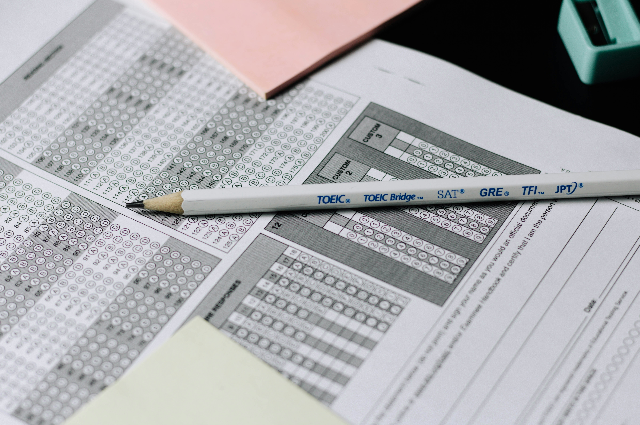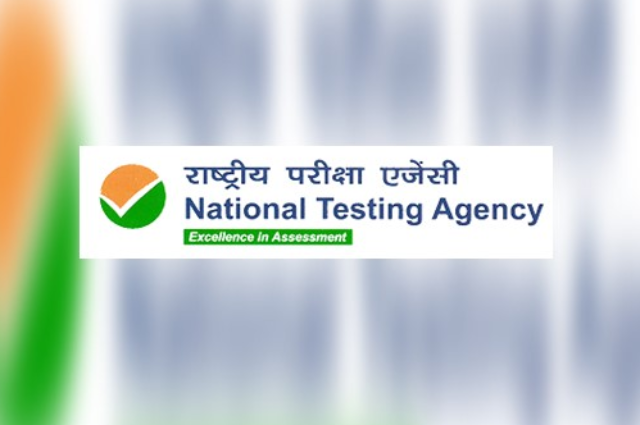
The NEET 2024 exam conducted on May 5 has become a subject of significant controversy due to allegations of a paper leak. These claims are currently being investigated by the authorities and a final report is yet to be submitted to the courts. The full scope of the issue remains uncertain but if the allegations are substantiated then it could severely impact the credibility of the exam and the future prospects of the students involved.
Incorrect Question Papers and Grace Marks
The National Testing Agency (NTA) has acknowledged that some students received incorrect question papers resulting in a loss of valuable exam time. To address this, the NTA awarded grace marks to 1,563 affected candidates. However, the justification for these grace marks has faced criticism. The NTA stated that it used a formula based on a 2018 Supreme Court judgment concerning the Common Law Admission Test (CLAT) for an online exam. Critics argue that this is inappropriate since NEET is an offline exam and the 2018 ruling explicitly excludes medical and engineering admissions. The NTA's decision to apply this formula without proper validation has led to demands for greater transparency and accountability.
Unprecedented Perfect Scores
This year an unprecedented number of students achieved perfect scores in the NEET exam. Initially, 23 students scored a perfect 720 but this number increased to 67 after corrections were made to the answer key. This sudden rise in perfect scores has raised concerns and further questions about the exam's integrity.
Issues with the Scoring System
The scoring system itself has also come under scrutiny. Given the penalties for incorrect or unanswered questions, it seems mathematically questionable for students to score 718 or 719 marks. The NTA has not provided a clear explanation of how the grace marks were calculated adding to the controversy.
Call for Transparency and Accountability
The situation calls for the NTA to provide a transparent and detailed explanation of their decisions and actions regarding the exam. Ensuring the integrity of the NEET exam is crucial, as it directly impacts the future of many aspiring medical students. The controversy highlights the need for a robust and transparent examination process to maintain the trust and confidence of students and the public.
Background of NEET Implementation
The National Eligibility cum Entrance Test (NEET) was introduced in 2010 when the Medical Council of India issued a notification on December 21 by amending the regulations for medical admissions. This change made NEET a single unified eligibility-cum-entrance examination across India for admissions into MBBS and BDS courses. The notification also empowered the central government to lower the minimum qualifying mark of 50% based on caste reservations.
Initial Opposition
The introduction of NEET faced significant opposition from various states including Gujarat, Maharashtra and Andhra Pradesh, when the then UPA government proposed it as a replacement for the All India Pre-Medical Entrance Test which was used by both central and state colleges. From 2013 to 2016, states presented arguments for and against NEET before the Supreme Court. Notably, Tamil Nadu, Andhra Pradesh, Telangana, Uttar Pradesh, the erstwhile Jammu and Kashmir and several private institutions strongly opposed the implementation of NEET.
Legal Challenges and Controversies
Supreme Court Hearing and Presidential Order
During a Supreme Court hearing in 2016, the legal counsel for Andhra Pradesh argued that the state was protected under a presidential order issued under Article 371D of the Indian Constitution. This order allowed the state to make its own decisions regarding employment and education. However, the Supreme Court overruled this argument.
Paper Leak and Scam
A major controversy emerged with a paper leak scandal in Gujarat, involving Vadodara-based international education consultants, educators and at least 16 students who each paid Rs 10 lakh to pass the exam. Reports surfaced of a paper leak group charging between Rs 20 to 25 lakhs for examination papers at Bhartiya Vidya Bhavan Mehta Vidyalaya. Additionally, at a centre in Rajasthan named Girls Higher Secondary Adarsh Vidya Mandir in Sawai Madhopur, Hindi medium students claimed they were given English medium question papers instead of Hindi ones.
Legal Petitions and Supreme Court Rulings
Filing of Petitions
In February 2013, around 80 petitions were filed in various courts across the country which were then transferred to the Supreme Court. These petitions were primarily filed by states including Gujarat, Andhra Pradesh, and Karnataka.
Supreme Court Judgment
In July 2013, the Supreme Court struck down the implementation of NEET by stating that it infringed upon the states' rights to manage education. Despite this, NEET was conducted for the first time in May 2013 across various centers in India even before the Supreme Court judgment was delivered. NEET was not conducted in 2014 and 2015 as the Medical Council of India filed a review petition challenging the verdict in October 2013.
Final Ruling and Implementation
The final hearing of the case took place in 2016 before a five-judge bench of the Supreme Court. The bench eventually ruled in favour of a single common entrance test for medical colleges across India. However, several states requested an exemption from participating in the exam due to a lack of preparation.
NEET despite its initial challenges and controversies, was established as a standardized entrance examination for medical courses in India. The journey involved significant legal battles, state opposition and incidents of malpractice, highlighting the complexities of implementing a uniform examination system in a diverse country like India.
NEET UG 2024: A Controversial Examination
- Unexpected Result Announcement: The NEET UG 2024 results have been involved in controversy with many students labelling it as a scam. On the day the Lok Sabha election results were announced, NEET UG results were unexpectedly declared, ten days ahead of schedule. Students suspect this timing was intentional and was aimed at diverting attention away from the examination results.
- Unprecedented High Scores: In an unprecedented turn of events, 67 students achieved a perfect score of 720 by securing the rank of 1. Notably, six of these top scorers hail from the same examination center in Haryana which is leading to suspicions of a possible paper leak.
- Questionable Scoring Patterns: Adding to the confusion, a significant number of students scored 718 and 719. Given the marking scheme of NEET which awards four marks for a correct answer and deducts one mark for an incorrect answer, these scores are mathematically unlikely. The highest possible score after 720 should be 716, making these results highly suspicious.
- Discrepancies in Score Calculations: Numerous students have reported discrepancies between their actual scores and the scores they calculated based on the official answer key. This discrepancy has further fueled allegations of malpractice in the examination process.
- Official Response and Lack of Transparency: The National Testing Agency (NTA) has disproven all allegations by stating that the high scores were due to grace marks awarded for lost time during the exam and a revision of one Physics answer. Despite these explanations, students and their families remain unconvinced due to the lack of transparency in the process.
- Impact on Students' Futures: The implications of this controversy are profound. Lakhs of medical aspirants who have dedicated years to preparing for this exam, now face uncertainty. With overstated cutoffs, many deserving students may miss out on admissions, despite their hard work and honest efforts. The NEET UG 2024 controversy highlights the critical need for transparency and fairness in competitive examinations, as the future of countless students hangs in the balance.
Arguments for and Against NEET
Proponents of NEET argue that it creates a level playing field for medical aspirants across the country, eliminating the need for multiple entrance exams.
Opponents argue that NEET disadvantages students from certain states, particularly those with regional language-based medical education systems. They also express concerns about the preparedness of students in rural areas for a standardized national exam. The debate surrounding NEET reflects the complex interplay between national educational standards and states' rights in India. The ongoing challenge is to ensure a fair and effective medical entrance system that considers both national needs and regional disparities.
Future Implications and Possible Actions: Petitions and Legal Actions
The NEET UG 2024 controversy has sparked numerous petitions demanding a re-examination to ensure fairness. Activists and students have taken legal action by filing Right to Information (RTI) applications and public interest litigations (PILs) to clarify issues like grace marks and the alleged paper leak. A writ petition has been filed with the Hon’ble Supreme Court of India requesting the re-conduct of the NEET UG 2024 exam due to these allegations. While the Supreme Court has not yet terminated the result declaration but it has agreed to review the case and issued a notice regarding the PIL.
Calls for Exam Re-conduct
The decision to re-conduct NEET 2024 focuses on judicial outcomes and ongoing legal proceedings. If conclusive evidence of a paper leak or result irregularities emerges then there is a strong possibility that the NEET exam will be held again. This uncertainty has led to significant public outcry with political parties and student organizations demanding the cancellation of the current results and a thorough investigation under Supreme Court supervision.
Impact on Students' Future
The NEET 2024 controversy has risked the futures of many students by highlighting the immense pressure and emotional stress on candidates. The tragic suicide of an 18-year-old medical aspirant from Kota after the results were announced highlights the urgent need for a transparent and fair examination process. There are widespread calls for systemic reforms to prevent such issues from being repeated. These include implementing stricter protocols, better monitoring mechanisms and clearer criteria for awarding grace marks. Such reforms are essential to restore the integrity of the education system and ensure that only deserving students are rewarded based on their genuine performance.
Criticism of the National Testing Agency (NTA)
The National Testing Agency (NTA) responsible for administering the NEET exam has recently faced significant criticism. The organization is now suspiciously called the "Notorious Testing Agency" due to several doubtful and unprecedented events. This part explores why it is crucial to re-address these issues before the next court hearing on July 8, 2024 and urges the Supreme Court to reconsider its interim decisions.
1. Preservation of OMR Sheets

One of the main points of contention involves the OMR sheets which are suspected of having exaggerated marks under the pretence of 'grace marks.' These sheets must be preserved immediately to prevent any potential tampering. If these documents are altered, it could severely compromise the integrity of the evidence.
2. Importance of CCTV Footage
Another critical piece of evidence includes CCTV footage and other corroborative materials that could demonstrate whether there were legitimate reasons for awarding grace marks. If these recordings are not retrieved punctually then they may be lost, making any subsequent investigation pointless.
3. Interim Relief from the Supreme Court
The Supreme Court has already identified serious lapses in the process. Given that all conditions for granting interim relief appear to be met then the Court should reconsider its position on this matter. Ideally, the issue should be addressed before the scheduled hearing on July 8, 2024.
4. Potential Delays and Consequences
If the Supreme Court delays its decision for three months and then orders a CBI investigation, it could lead to a situation where the damage is already done similar to performing a successful operation on a deceased patient. Such delays would mean crucial data including mobile phone records and social media app information of the accused could be lost by the time an investigation begins.
5. Compensation and Re-Examination
Students should demand compensation and a re-examination as their fundamental right to a fair and accurate assessment in public exams has been violated.
6. Possibility of Re-Conducting NEET
From a commercial perspective, re-conducting the NEET exam is feasible. Many students are willing to pay the examination fees again to ensure they get a fair chance. Thus, re-conducting the exam is not only the most pragmatic solution to preserve the integrity of the NEET exam but also justified from a commercial standpoint.
Given these serious concerns, it is imperative that the matter be revisited before the next court hearing. Immediate action is needed to preserve evidence, reconsider interim relief and ensure a fair examination process for all students involved.
Key Proposed Reforms: Ensuring Integrity and Improvements in Examinations
1. Enhanced Security Measures
One of the key proposed reforms involves the implementation of advanced surveillance and monitoring technologies at examination centers. These technologies are designed to detect and prevent cheating by ensuring that the examination process remains fair and transparent.
2. Robust Identity Verification
Strengthening the processes for candidate verification is another crucial reform. This measure aims to ensure that only legitimate candidates are allowed to sit for the exams. By verifying identities more rigorously then the integrity of the examination process can be maintained.
3. Independent Oversight
To ensure the proper conduct of exams, the establishment of independent committees has been proposed. These committees will oversee the examination process and investigate any irregularities in a timely manner. This independent oversight is essential for maintaining trust in the examination system.
4. Technological Integration
The integration of Artificial Intelligence (AI) and machine learning tools is also a significant aspect of the proposed reforms. These tools will be used to analyze exam patterns and detect anomalies that may suggest cheating. By leveraging advanced technology, the examination system can become more secure and reliable.
5. Legal Deterrence
Enforcing stricter legal consequences for those involved in examination fraud is another critical reform. This includes imprisonment and substantial fines as outlined in the Public Examinations (Prevention of Unfair Means) Act 2024. Such legal deterrence is vital for discouraging fraudulent activities and promoting fairness in examinations.
6. Aiming for Fair and Transparent Assessments
These reforms are designed to restore public confidence in the examination system. By ensuring that assessments are fair, transparent and merit-based, the government aims to uphold educational integrity. The commitment to these changes reflects a broader dedication to the future of students across the country by ensuring they are assessed in a just and honest manner.
Addressing the NEET Crisis: A Call for Examination Reform
One of the immediate challenges facing the new government is the ongoing NEET (National Eligibility cum Entrance Test) controversy. Issues such as inflated scores, the allocation of grace marks, an unusually high number of perfect scores, allegations of paper leaks, and demands for a retest have caused significant stress for students, parents, and the government. This isn't an isolated incident and unfortunately, it won’t be the last. Conducting such a large-scale examination for over 2.3 million students in 13 languages across 4,500 centers in India and 14 countries abroad is an enormous task. Similar problems affect the Common University Entrance Test (CUET) for undergraduate admissions and the JEE Mains exam, both of which are taken by over a million students. These exams have grown into massive challenges that require better management.
The Increasing Demand for the Education System
Currently, the gross enrolment ratio (GER) in higher education in India is about 26%. The goal is to increase this to over 50% in the next decade which means the number of candidates taking entrance exams will double. This raises two critical questions: First, is it necessary to administer such massive single exams on such a large scale? Second, if these exams are essential, can we adopt better practices from countries like the US and China, which have successfully managed similar challenges by developing systems that suit their needs?
The Pressure of Single-Score Admissions
Admissions to government institutions in India heavily rely on a single test score by placing an enormous burden on these exams to accurately assess a student's overall academic ability and potential. One major drawback of standardizing school education through uniform national boards and common entrance exams is the homogenization of higher education intake, which can stifle creativity and diversity of thought. Additionally, this standardization inadvertently fuels the coaching industry.
Designing a Better Examination System
The design of these exams must prioritize flexibility, transparency, diversity, scalability, accessibility of materials and the availability of language options. Here are three potential steps to create a more equitable and effective exam system:
1. Learn from Global Models:
The United States which is home to many top-ranking institutions follows a diversified admissions model. The SAT and ACT are the primary standardized tests for college admissions taken by about 2 million students each year. In contrast, China's 'gaokao' is one of the largest exams globally in terms of participation with a record 13.4 million students taking it in 2024. It is a high-stakes, highly standardized exam lasting approximately nine hours over two to three days, depending on the provincial regions. It is also a very secure process, with teachers being secured to have less communication with students and armed guards escorting the vehicles transporting exam papers.
2. Adapting the US Model for India:
The US model could be more suitable for India as it offers flexibility with multiple test dates throughout the year and reduces stress by spreading the risk over an extended period rather than concentrating it on a single event. In India, private companies now provide the IT and physical infrastructure to conduct secure online computer-based tests for over 200,000 candidates at a time. Establishing a large question bank with questions of varying difficulty levels, randomly selected by an algorithm for each candidate along with real-time adaptation and immediate provision of raw scores after the test could effectively address the challenges of scaling up exams. This approach could combine the flexibility and efficiency of the US model with the rigorous standards necessary for high-stakes exams in India.
3. Implementing Technological Solutions:
Leveraging technology can significantly improve the current examination system. Conducting exams online with secure infrastructure can mitigate issues of paper leaks and manipulation. Real-time scoring and adaptive testing methods can provide immediate results and more accurately reflect a student's capabilities. This would not only make the process more transparent but also reduce the stress and uncertainty associated with traditional paper-based exams.
To ensure that India's higher education system can accommodate the growing number of students and maintain high standards, it is crucial to reform the current examination process. Learning from international practices, embracing flexibility and utilizing technology are key steps toward creating a more effective and equitable exam system. The government must prioritize these changes to address the ongoing challenges and future demands of higher education in India.
Legal impetus in NEET UG 2024: law to combat unfair means in the examination
The NEET UG 2024 examination has recently come under intense scrutiny following allegations of malpractice. Claims of question paper leaks, unjustified awarding of grace marks and suspicious activities at certain exam centers have cast a shadow over the examination process.
Mounting Legal Battles and Calls for Accountability
These issues have triggered a series of legal battles and a widespread call for accountability. Union Education Minister Dharmendra Pradhan has assured the public that those responsible will face severe consequences. He emphasized that even senior officials of the National Testing Agency (NTA) would be held accountable if found part of any planning. This strong stance emphasizes the government’s commitment to maintaining the integrity of public examinations.
The Public Examinations Act 2024: A Legal Framework Against Cheating
The legal framework addressing such malpractices is secured by the Public Examinations (Prevention of Unfair Means) Act 2024. This legislation criminalizes various forms of cheating and tampering during public examinations. The Act imposes stringent penalties on those found guilty of facilitating or engaging in unfair practices such as impersonation or leaking examination papers. Offenders face severe punishments, including imprisonment and substantial fines.
A Firm Stance Against Examination Malpractice
The government's firm stance and the stringent provisions of the Public Examinations Act are essential steps towards ensuring the credibility of the NEET UG 2024 and other public examinations. Upholding the integrity of these exams is crucial for maintaining public trust and ensuring a fair assessment process for all candidates.
NTA Leadership Changes Amidst Exam Controversies
The central government has made a significant leadership change at the National Testing Agency (NTA) by removing Subodh Kumar Singh from his position as Director General. He has been placed on “compulsory wait” within the Department of Personnel and Training. This move comes in the wake of growing controversy over alleged irregularities in exams conducted by the NTA.
New Leadership and Additional Responsibilities
To address the situation, Pradeep Singh Kharola has been appointed with additional responsibilities as the Director General of the NTA. His new role falls under the jurisdiction of the Ministry of Education. This change in leadership aims to bring stability and integrity to the agency amid the ongoing controversies.
Formation of a High-Level Expert Committee
In response to the allegations, the Ministry of Education has established a high-level expert committee tasked with recommending reforms for the examination process. This seven-member committee which is being chaired by former ISRO chairman K Radhakrishnan will also focus on enhancing data security and improving NTA’s operations. The committee is expected to deliver its report within two months, providing crucial insights and recommendations for preventing future irregularities.
New Legislation Against Exam Malpractices
The government has enacted a stringent law to combat malpractice and irregularities in competitive examinations. This new legislation includes severe penalties with those found guilty facing up to 10 years in prison and fines reaching ₹1 crore. This measure highlights the government's commitment to maintaining the integrity of competitive exams and ensuring fairness for all candidates.
Impact on Key Examinations
1. NEET-PG 2024:
One of the major exams affected by the recent issues is NEET-PG 2024. Originally scheduled for today, the exam has been postponed. The authorities have assured that a new date will be announced soon that will allow candidates to adequately prepare without uncertainty.
2. CSIR-UGC-NET 2024:
Similarly, the CSIR-UGC-NET 2024 exam, initially planned for June 25 and 27, has been postponed by the NTA. The reasons cited include "unavoidable circumstances" and "logistic issues." As with NEET-PG, a new date for this exam is yet to be confirmed, but it will be announced in due course.
The recent changes and actions taken by the Centre reflect a strong response to the controversies surrounding the NTA. By appointing new leadership, forming an expert committee, and enacting strict laws against exam malpractices, the government aims to restore trust in the examination system and ensure the integrity of future competitive exams. Candidates affected by the postponements should stay updated on new dates and prepare for their rescheduled exams with the assurance that steps are being taken to address the underlying issues.
Conclusion
The NEET 2024 fiasco has disrupted the lives of 24 lakh students who spent years rigorously preparing for this essential exam. These students along with their families—totalling in the crores are experiencing significant emotional and financial strain. This isn't merely an educational issue; it is a national disaster that threatens the core of our academic system. NEET is crucial as it often determines the future careers of aspiring doctors across the country.
Families have invested substantial amounts of money with many taking out loans to afford expensive coaching classes, all in the hope of ensuring a bright future for their children. The scandal has not only caused significant financial losses but also led to emotional turmoil by creating a wave of hopelessness and uncertainty. Dreams have been shattered, trust in the educational system has been broken and the faith in a fair and just process has been severely undermined. The repercussions of this scandal extend beyond education, potentially affecting the healthcare system. With the integrity of the NEET exam compromised, there is a risk that unqualified individuals could become doctors, placing the health and lives of millions at risk. The credibility of the medical profession is in jeopardy with serious consequences for public health.
This crisis called for prompt and decisive measures to restore trust and ensure that such a situation is never repeated. It is imperative to implement justice, transparency and accountability within the system to prevent future scandals and to protect the integrity of our educational and healthcare institutions.
. . .
References:




